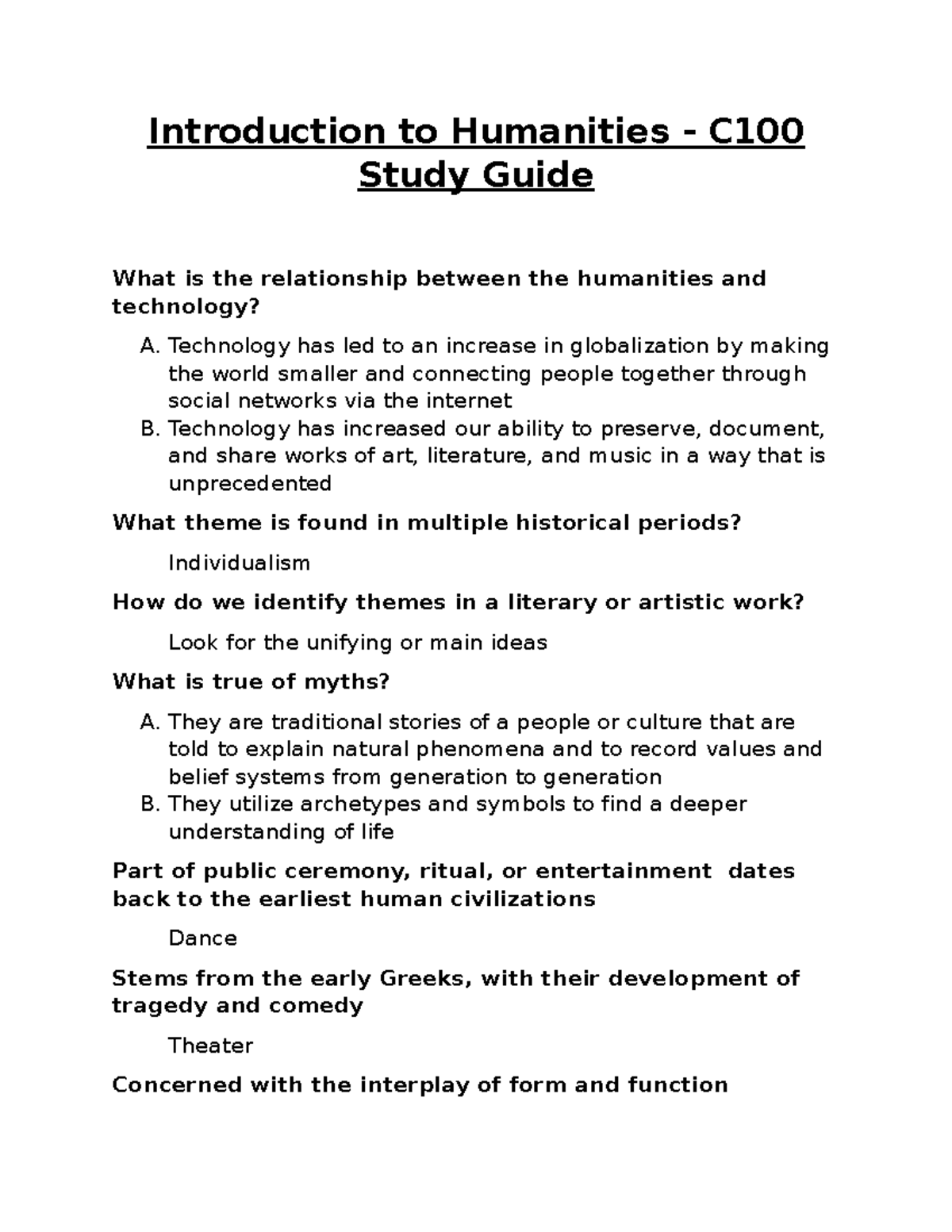Katie Kitamura: Exploring Horror and Performance in Literature
April 22, 2025 | Culture News | No Comments

Katie Kitamura, a celebrated novelist and 2025 Guggenheim Fellow in fiction, captures the complex interplay of reality and performance in her latest work, “Audition.” Known for her tense narratives, Kitamura delves into themes of horror in literature, drawing inspiration from classics like “Rosemary’s Baby” to explore uncanny experiences familiar yet deeply unsettling. In a recent Katie Kitamura interview, she discusses her fascination with the malleability of identity and the multiplicity of roles we perform in life, especially within the confines of familial relationships. As readers navigate the intricacies of her characters’ lives, they are confronted with fundamental questions about privacy and connection. With a keen eye for detail and a rich understanding of human behavior, Kitamura continues to establish herself as a powerful voice in contemporary literature, inviting audiences into a world where every performance conceals a deeper truth.
The exploration of identity and its performative aspects is a hallmark of modern literature, particularly in the context of contemporary narratives that tackle the nuances of interpersonal relationships. As writers like Kitamura craft stories that weave together themes of horror and humanity, they invite readers to examine their own lives through the lens of performance and secrecy. In works like “Audition,” the tension between external appearances and internal realities becomes a fertile ground for storytelling, allowing for a vivid portrayal of the characters’ psychological landscapes. As fictions reflect societal anxieties and personal dilemmas, they serve as a reminder of the complexities inherent in human connections and the quiet horrors that often lie beneath the surface of everyday life.
Exploring Horror in Literature: Katie Kitamura’s Unique Perspective
Horror in literature often serves as a reflection of our deepest fears and societal anxieties, and Katie Kitamura’s latest novel, “Audition,” exemplifies this connection. Kitamura, known for her ability to weave intricate narratives, now delves into themes of family secrets and the eerie uncertainties of middle age. Engaging with horror as a genre, she evokes the disquieting atmosphere found in classic works like “Rosemary’s Baby,” drawing parallels between the life of a troubled mother and the terrifying elements of urban life in New York City. Kitamura masterfully explores the uncanny, pushing readers to question reality as her characters confront the unfamiliar faces of those they love. This intersection of horror and everyday life invites both suspense and deeper philosophical inquiries about personal identity and familial relations, resonating with the zeitgeist of contemporary literature.
For Kitamura, horror is not merely about the supernatural; it embodies a psychological exploration of fear and misunderstanding within relationships. As her characters navigate complex dynamics, including the hidden aspects of their lives, the novel dances on the edge of terror and intimacy, revealing how isolation can manifest into a chilling reality. In this way, horror becomes a vehicle for examining performance in personal relationships—how individuals wear masks in their daily interactions, and when those masks begin to slip. This profound concept aligns with LSI optimization, as we see the thematic overlaps between horror and writing performance unravel throughout her novel.
Moreover, Kitamura’s approach invites literary critiques related to performance in writing, allowing her to explore not only what it means to portray fearfulness but also how characters’ facades can be more revealing than their truths. As she stated, “the terrifying moments in horror come from confronting the familiar that transforms into something alien.” This sense of transformation is crucial, showcasing how Kitamura uses horror not just to scare, but to provoke thought about the nature of identity and connection. Critics have noted that the elements of psychological horror enrich the narrative, compelling readers to engage with the meta-textual layers—that is, the concealed messages about performance and perception lurking beneath the societal veneer of normalcy.
The Complex Relationship Between Performance and Privacy in Kitamura’s Work
In “Audition,” the duality of performance and privacy is intricately linked to the protagonist’s journey. Kitamura posits that performance is intrinsic to our existence, shaping how we relate to ourselves and others. As she illustrates through her protagonist—who is an actor—the act of performing becomes a lens through which we view authenticity and intimacy. This embodied performativity echoes across her previous works, where characters often grapple with their public personas versus their private selves. The tension created between these aspects of identity evokes a sense of horror when the roles we play begin to fracture, revealing unsettling truths that challenge our pre-conceived notions of reality.
Kitamura’s exploration of privacy highlights the paradox that lies in close relationships; while striving for connection, we often maintain hidden aspects of ourselves. This negation of full transparency raises questions that resonate within the frameworks of her narrative. Readers are invited to ponder whether complete honesty is a goal in relationships or if it leads to a more significant sense of alienation. As Kitamura eloquently articulates, the idea of full disclosure is a myth wrapped in complexity and, perhaps, a disturbing truth in its own right. This complexity not only enhances the narrative depth but also invites discussions surrounding personal boundaries and the inherent fears of revealing oneself to others.
As an author and educator, Kitamura underscores the importance of understanding these layers of performance, advocating for a nuanced examination of characters’ motivations and the repercussions of their artifice. With each interaction, her characters navigate the delicate balance of vulnerability and reserve, making their struggles both relatable and haunting. This blurring of lines between who we are and who we portray speaks to broader themes in modern literature, where the act of writing itself becomes a performance—an unsettling yet fascinating commentary on identity and narrative construction.
The Significance of Katie Kitamura’s Voice in Contemporary Literature
Katie Kitamura’s literary contributions have carved out a distinctive space in contemporary fiction, particularly with her exploration of complex emotional landscapes. As a Guggenheim Fellow in fiction, her work has received critical acclaim for its incisive observations and thought-provoking themes. In her recent novel, “Audition,” Kitamura’s voice shines as she examines the interplay between isolation and familial bonds within the context of a cramped New York City apartment. The backdrop of urban life vividly enhances the narrative, reflecting both the intimacy and claustrophobia that often accompany close-knit relationships.
The significance of her voice extends beyond narrative technique to encompass broader cultural reflections. Themes of motherhood, performance, and the dark undercurrents of human interaction are central to Kitamura’s writing. Through her skillful melding of personal and sociopolitical elements, she generates a dialogue that is both timely and relevant, inviting readers to reconsider their own relationships and the emotional dynamics at play. As Kitamura candidly explores these themes, her work resonates with those grappling with the complexities of modern existence, especially in times marked by uncertainty and crisis.
Furthermore, Kitamura’s position as a teacher at New York University emphasizes her commitment to fostering new generations of writers. As she inspires her students to engage with literature during tumultuous times, she conveys the undeniable power fiction holds to challenge the status quo and stimulate conversation. The act of writing, according to Kitamura, is not merely an artistic endeavor; it is a crucial tool for shaping perceptions and fostering empathy. In this way, her contributions to literature serve as a reminder of the enduring relevance of storytelling, underscoring that through the written word, we create spaces for understanding, reflection, and ultimately, connection.
Unpacking the Layers of Character Complexity in ‘Audition’
In “Audition,” Katie Kitamura delves into the depths of character complexity, challenging readers to consider the multifaceted nature of identity. The protagonist’s journey is rife with emotional turmoil and uncertainty, emblematic of the struggles many face in navigating their roles within family dynamics and societal expectations. Through nuanced storytelling, Kitamura crafts characters who are simultaneously relatable and deeply flawed, inviting readers to empathize with their internal conflicts. This complexity creates a rich tapestry of interrelationships, echoing themes prevalent in both horror and psychological drama.
As Kitamura examines the protagonist’s struggles with performance and authenticity, she prompts readers to reflect on the masks they wear in their daily lives. The tension between outward appearances and inner realities becomes a compelling focal point as characters grapple with their true selves amid overwhelming expectations. Kitamura’s portrayal of this tension resonates powerfully within modern literature, where debates about authenticity and performance are increasingly significant in understanding contemporary identity.
Moreover, Kitamura’s keen attention to detail in character development reinforces the narrative’s emotional depth. As readers accompany the protagonist through moments of vulnerability and existential dread, the layers of meaning unfold, revealing how trauma, secrecy, and the longing for connection shape individual identities. This psychological exploration not only enhances the allure of her characters but also underscores the inherent horror of isolation and misunderstanding within close relationships. In capturing these elements, Kitamura invites a broader discussion about the nature of selfhood and the performances we engage in, both within fiction and in our personal lives.
The Impact of the Pandemic on Kitamura’s Writing Process
Katie Kitamura’s writing is undeniably influenced by the global events that shape our lived experiences, particularly during the pandemic. “Audition” serves as a reflection of the emotions and realities faced by many during a period marked by uncertainty and confinement. Although the narrative does not explicitly reference masks or viruses, it subconsciously resonates with the themes of shared space and the claustrophobia that arises from familial entanglements. Kitamura’s creative process, enshrined against the backdrop of a pandemic, captures the intricate dynamics of personal relationships strained by external pressures, aptly illustrating how crises shift perspectives on intimacy and isolation.
By subconsciously integrating elements of the pandemic into her narrative framework, Kitamura unveils the subtle nuances of characters navigating an altered reality. The spatio-temporal constraints of life in a small apartment serve as a metaphorical microscope, allowing readers to examine the fractures within relationships that emerge in turbulent times. This exploration of how external society influences personal lives resonates deeply with the ongoing cultural conversations surrounding privacy, autonomy, and emotional longevity, ultimately shaping Kitamura’s thematic focus throughout her work.
Moreover, Kitamura’s reflection on her writing process during such unprecedented circumstances emphasizes the role of creativity as a form of resilience. In facing the challenges posed by the pandemic, she adeptly channels the collective experience into a compelling narrative that recognizes the importance of storytelling amid crisis. This ability to weave personal and societal narratives demonstrates the vital role literature plays in processing turmoil, ultimately serving as a source of connection and understanding in uncertain times. Through her work, Kitamura reminds us of the profound impact that cultural events have on our narratives, illustrating how loss, isolation, and fear can be transformed into a powerful literary exploration.
The Art of Writing: Performance and Expression in Kitamura’s Novels
Katie Kitamura’s exploration of performance extends well beyond the themes present in “Audition.” As a writer, she emphasizes the importance of storytelling as an art form that engages and captivates audiences. In her teaching at New York University, she encourages aspiring writers to effectively wield language, promote precision in their narratives, and explore the depth of human experience through their characters. Kitamura’s approach demonstrates how writing itself can be viewed as a performance—one that evokes emotions and conveys profound truths through carefully constructed narratives.
This artistic endeavor reflects Kitamura’s own journey as a Guggenheim Fellow, where the intersection of art and narrative becomes paramount for shaping the societal discourse. Her commitment to exploring performance in both literature and life creates a dialogue about how narratives can convey not just stories, but the very essence of human connection. The thematic richness in her writing illustrates how performance can influence perception, pushing readers to confront their understanding of reality and the roles we inhabit in our daily lives.
Furthermore, Kitamura’s awareness of the relationship between language and performance invites readers to rethink the ways in which fiction can be employed to navigate complex emotional landscapes. By adopting various narrative styles and incorporating elements of performance within her characters’ arcs, Kitamura’s novels challenge the conventional boundaries of storytelling. This deliberate choice allows her to portray the malleable nature of identity while positioning iit as a reflective surface for broader societal concerns. Through her remarkable artistry, Kitamura advocates for the power of writing not just as a means of expression but as an avenue for exploring and understanding the intricacies of human existence.
Engaging with the Theme of Family Dynamics in ‘Audition’
Katie Kitamura’s “Audition” intricately weaves themes of family dynamics into its narrative, resulting in a profound exploration of familial relationships amidst chaos. The protagonist’s experience is centered around her interactions within her close-knit family, bringing forward the complexities of life as they grapple with hidden secrets and emotional isolation within the small confines of their New York apartment. This setting acts as a poignant symbol of the intimacy and friction that often characterize familial bonds, heightening the stakes and tension throughout the novel.
Furthermore, Kitamura’s ability to portray the delicate balance between love and resentment serves to illuminate the broader societal themes of parental expectations and the pursuit of personal identity. Readers witness the characters’ struggles to navigate their roles and responsibilities, inevitably leading to moments of emotional confrontation that resonate deeply. This exploration of family dynamics not only enriches the narrative but also allows readers to reflect on their own experiences, fostering a dialogue on the universal challenges faced within familial relationships.
In delving into the complexities of family life, Kitamura invites readers to grapple with the inherent contradictions present in intimate relationships. The interplay of support and suffocation, loyalty and betrayal cuts to the core of what it means to be a family member. Kitamura skillfully captures these nuances, reminding us that family ties can often elicit both affection and fear. Through her vivid portrayal of the protagonist’s struggles, audiences are encouraged to engage in this nuanced discourse about the nature of belonging and the sometimes paradoxical experiences that accompany it, reinforcing the significance of Kitamura’s work in the context of contemporary literature.
The Role of Language as a Tool for Connection in Kitamura’s Works
In “Audition” and her previous works, Katie Kitamura emphasizes the powerful role language plays in fostering connection among individuals. She articulates this importance in the context of her teaching, as she guides her students through the art of writing with precision and intent. Kitamura asserts that language serves not only as a medium for storytelling but also as a source of connection that enriches human relationships and aids in bridging the emotional divides that exist within our society. This notion underscores the inherent significance of expression in the realms of literature and everyday life, where the ability to articulate thoughts and feelings becomes central to understanding one another.
By engaging with language as both a tool for narrative and a means of communication, Kitamura explores how words can illuminate the complexities of human emotion and interaction. The characters in her novels, grappling with their own motivations and the expectations of others, demonstrate how effective communication can either heal or exacerbate tensions in their relationships. Consequently, Kitamura’s work serves as a reminder of the profound impact language has on our connections, prompting readers to reevaluate their own dialogues and the roles that words play in shaping their realities.
Moreover, the way Kitamura tackles linguistic precision and the power of narrative voice reflects her beliefs regarding the potential for fiction to drive meaningful conversations about societal issues. During her interviews, she often emphasizes the transformative power of storytelling as a way of engaging with contemporary realities—the need to imagine alternative futures and foster empathy through shared narratives. This dedication to language as a vehicle for understanding reiterates the potential for literature to ignite change, fostering a sense of agency in both writers and readers alike. Ultimately, Kitamura’s emphasis on the significance of language as a connective force reinforces the idea that storytelling is not merely an art form but an essential part of the human experience.
Frequently Asked Questions
What themes does Katie Kitamura explore in her novel ‘Audition’?
In ‘Audition,’ Katie Kitamura delves into themes of performance, identity, and the complexities of midlife. The novel examines how characters navigate secrets within their family, set against the backdrop of a claustrophobic New York City apartment, reflecting on the uncanny nature of personal connections and the masks people wear in their interactions.
How does horror influence Katie Kitamura’s writing in ‘Audition’?
Katie Kitamura engages with horror in ‘Audition’ by incorporating elements that evoke unsettling feelings associated with motherhood and familial tension. Inspired by works like ‘Rosemary’s Baby,’ Kitamura’s writing explores the psychological horror of perceiving familiar figures as strangers, highlighting the fragility of understanding one’s relationships.
What insights does Katie Kitamura offer about privacy in relationships?
In her discussions, Katie Kitamura emphasizes the importance of privacy within relationships, suggesting that complete transparency may be unhealthy. She believes that a successful relationship allows for individual secrets and the recognition that true understanding of another person may be elusive, which resonates with the themes presented in her novels.
What is the significance of performance in Katie Kitamura’s literary work?
Performance is a central theme in Katie Kitamura’s literary work, illustrating how identities are shaped through the roles we play in life. Kitamura suggests that our interactions are inherently performative, reflecting the adaptability of human nature while also revealing moments when those facades begin to crack, leading to a deeper inquiry about authenticity and intimacy.
How does Katie Kitamura’s background inform her perspective on fiction writing?
As a 2025 Guggenheim Fellow and an English professor, Katie Kitamura’s background enriches her perspective on fiction. She advocates for the power of literature as a means to challenge societal norms and envision alternative realities, particularly in tumultuous times, underscoring her belief in the transformative potential of narrative.
What role does Katie Kitamura see for fiction in today’s society?
Katie Kitamura views fiction as a crucial tool for exploring and understanding reality. She believes that writing can offer insights into human experiences and serve as a counterbalance to oppressive narratives, emphasizing that literature connects individuals and fosters a shared understanding amid societal divides.
How has the pandemic influenced Katie Kitamura’s writing process for ‘Audition’?
Although ‘Audition’ does not explicitly reference the pandemic, its writing was influenced by the environment of isolation and familial tension during that time. Kitamura acknowledges that the sociopolitical atmosphere inevitably seeps into her narrative, shaping how characters experience and react to their confined realities.
| Key Points | Details |
|---|---|
| Katie Kitamura’s Latest Novel | “Audition,” explores themes of uncertainty in midlife and the uncanny aspects of family life in New York. |
| Upcoming Harvard Event | Kitamura will discuss her novel with Claire Messud at the Mahindra Humanities Center on April 21, 2025. |
| Horror Genre Influence | Incorporates elements of horror, drawing inspiration from classics like “Rosemary’s Baby” to depict fear of the unknown in familiar relationships. |
| Writing During the Pandemic | Written during the pandemic, “Audition” inadvertently reflects themes of confinement and familial tension. |
| Role of Performance | Explores how people learn to exist through performance and the façade of relationships, raising questions about true intimacy. |
| Importance of Fiction | Advocates for the value of fiction writing in understanding reality and envisioning new possibilities, especially in challenging times. |
| Connection through Literature | Believes reading fosters profound connections among people, counteracting societal division. |
Summary
Katie Kitamura continues to explore the depths of human relationships and the intricacies of identity in her latest work, “Audition.” This novel delves into the unsettling aspects of midlife experiences, capturing the eerie dynamics of family life in the context of contemporary challenges. Through her insightful reflections and her commitment to fiction, Kitamura emphasizes the significance of literature in nurturing connection and understanding in an increasingly complex world.
Audition novel, Guggenheim Fellow fiction, horror in literature, Katie Kitamura, Katie Kitamura interview, performance in writing

